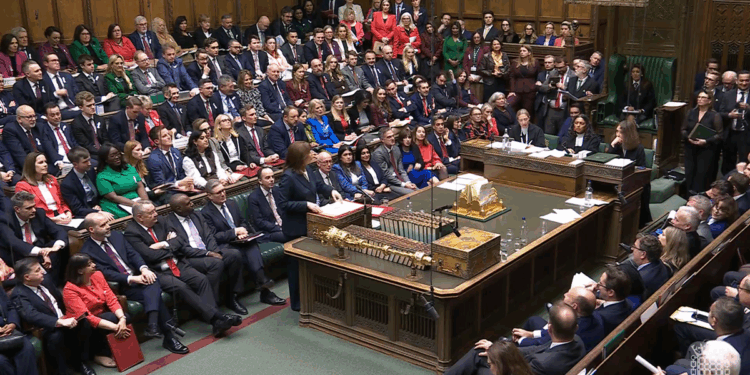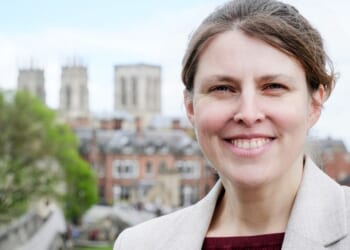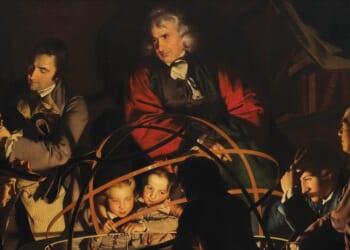BISHOPS and charities, praising the removal of the two-child benefit cap, say that it will lift hundreds of thousands of children out of poverty. The change was announced in the Autumn Budget by the Chancellor, Rachel Reeves, on Wednesday afternoon.
The former Prime Minister Gordon Brown congratulated faith leaders who had long called for the policy, which had been introduced by the Conservative Chancellor George Osborne shortly after the 2015 General Election, to be scrapped.
“From April, nearly half a million children will be lifted out of poverty, thanks to their campaign, for which I thank all religious leaders,” he told the Church Times.
The Church of England’s lead bishop for child-poverty issues, the Bishop of Leicester, the Rt Revd Martyn Snow, said that the decision would “make a profoundly positive difference to hundreds of thousands of children and their families.
“The Church of England has long called for this day, as we believe in the equal and unsurpassable worth of every single child. As we celebrate the end of the two-child limit and commend the Government for taking action, we will continue to draw attention to the barriers — such as the household benefit cap — which still prevent many families from accessing vital support for their children.”
In the Office for Budget Responsibility (OBR) document — which was accidentally published before Ms Reeves’s speech in error — the Government estimates that removing the two-child limit will reduce child poverty by approximately 450,000 children by 2029-30.
The new policy means that parents can claim universal credit or tax credits up to the value of £3500 per year for second and subsequent children born after 6 April 2017. The increased Universal Credit award will average at £5310 per child, per year.
The changes, to take effect from April 2026, are expected to cost £2.3 billion in 2026-27 and £3 billion in 2029-30. This includes £300 million by 2029-30 to cover the estimated 25,000 additional families that are now expected to make a Universal Credit claim.
Announcing the reform, Ms Reeves described the two-child limit as “pushing hundreds of thousands of children into poverty”. As backbenchers shouted “Shame!” in response to mention of the historic policy, and the Opposition jeered and waved their order papers, Ms Reeves retorted: “The thing [the Opposition] get angry about is lifting children out of poverty.”
In her response, Ms Badenoch described Ms Reeves as “spineless, shameless, and completely aimless”, and said: “If she wants to reduce child poverty, she should stop taxing their parents.”
The Bishop of Manchester, Dr David Walker, welcomed the Government’s decision. He told the Church Times: “For years, this policy has been one of the biggest drivers of child poverty in the UK.”
The cap “forces families into impossible choices and deepens hardship for those already struggling”, he said. “Its removal is a vital step towards restoring dignity and fairness to our welfare system and to stemming the growth of child poverty.”
The director of policy at Trussell, Helen Barnard, said on Wednesday that removing the “cruel” two-child limit “will protect hundreds of thousands of children from growing up facing hunger and hardship”.
This would “pull 470,000 children out of severe hunger and hardship by 2027 and ease pressure on foodbanks throughout the UK”, she said. But she called for “more bold choices to transform lives across our communities.”
The chief executive of the Child Poverty Action Group, Alison Garnham, said that the changes would be “transformational for children” and “a much-needed fresh start in our country’s efforts to eradicate child poverty”.
The CEO of the Children’s Society, Mark Russell, said that the change was “a watershed moment” for children. “It shows that even in tough economic times government can choose to back children with bold, life changing action.”
The chief executive of Christians Against Poverty, Stewart McCulloch, also welcomed the change as an “investment in the nation’s future citizens, workforce, and well-being”.
Mr Brown, whose campaign against the cap has gathered pace in recent months, said: “I congratulate the church and faith leaders who signed letters to the Prime Minister and Chancellor and who, with many religious organisations, demanded that the [Government] abolish the two-child rule that has condemned thousands of the most vulnerable children to poverty.”

















